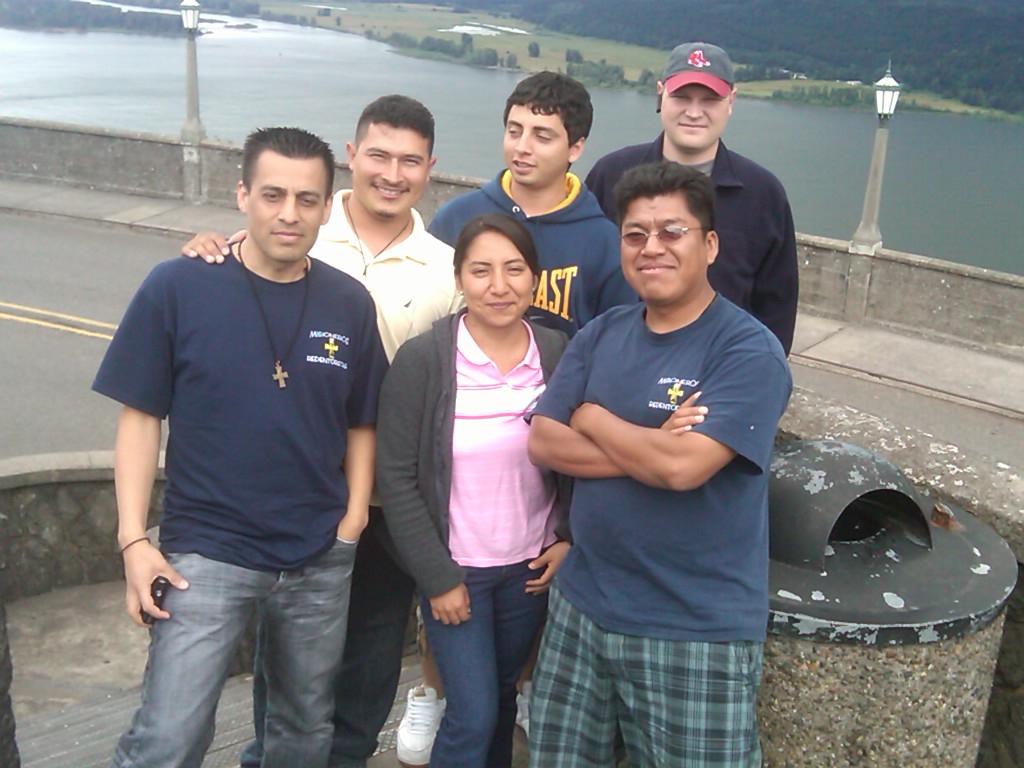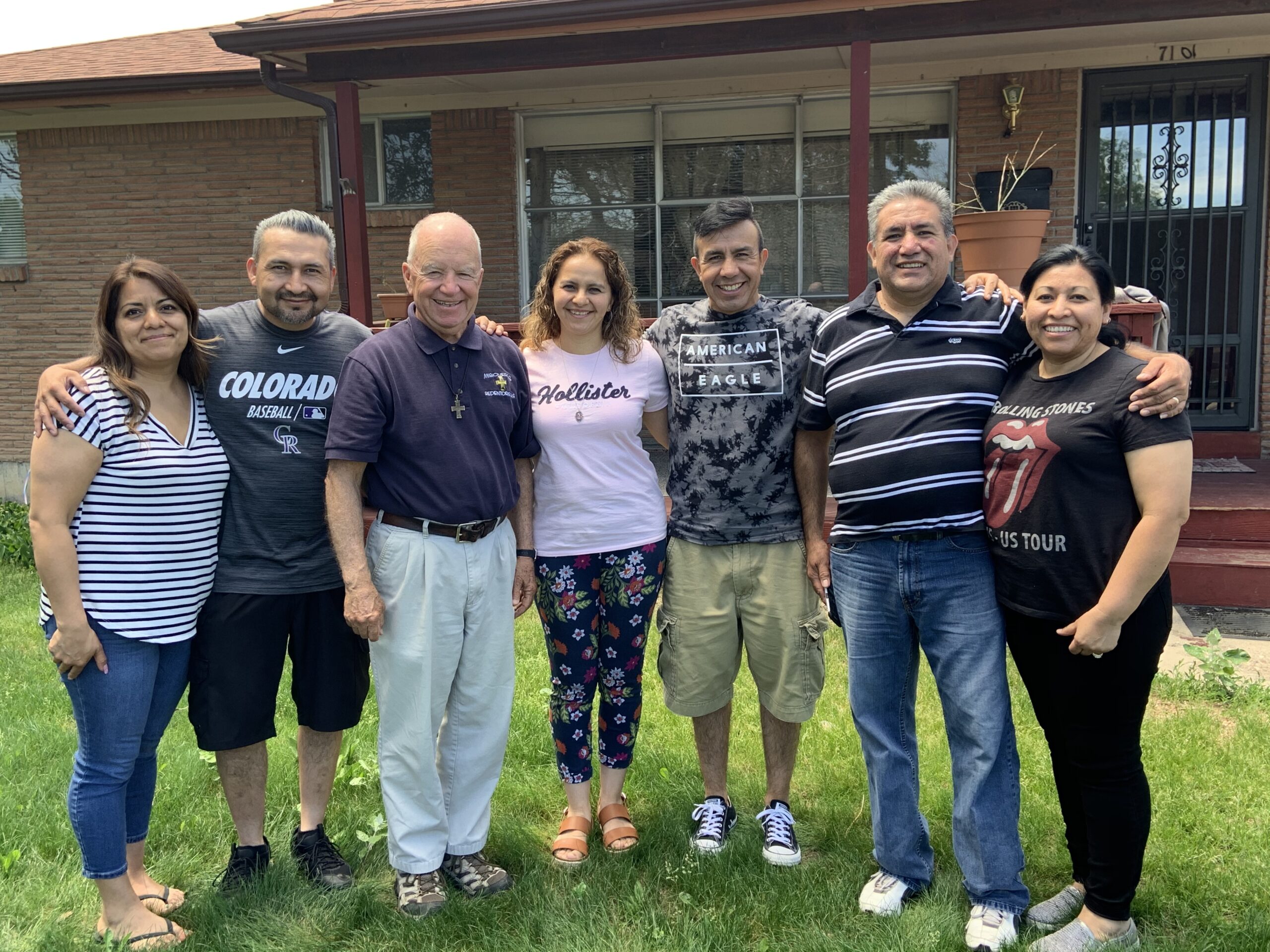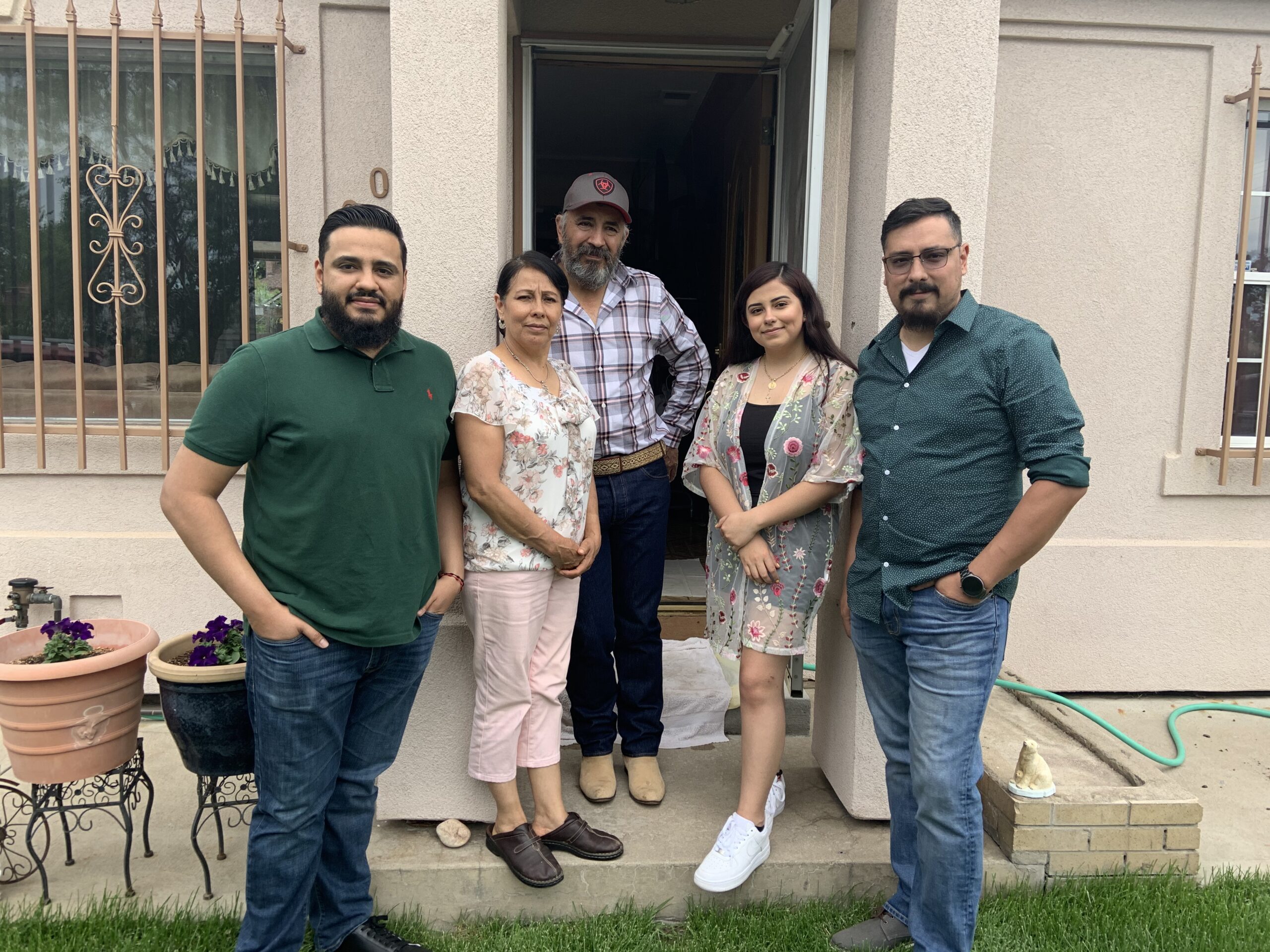Vocation/Vocación : Harvest Mission – Misión de la Cosecha
sa
Misión de la Cosecha
Permíteme compartir la aventura de mi vida como misionero y sacerdote. Cuando considero mi vida, mi camino con campesinos empezó en The Dalles, Oregon. Puedo dedicar un libro para contar la aventura que experimenté en trece años con migrantes que piscó la “cherry”. He escrito algo de eso en otro blog, pero quiero reflejar en como la misión sacramental en The Dalles me formó de ser un sacerdote dedicado a los que trabajan en el campo.
Harvest Mission
Let me share the adventure my life has been as a missionary and priest. When I consider my life, my initiation into the lives of farmworkers, began in The Dalles, Oregon. I could dedicate a book to tell the adventure that I experienced in thirteen years with migrant workers during the cherry harvest. I wrote part of this story in another blog, but allow me to reflect on how the sacramental mission at The Dalles shaped me to be a priest dedicated to those who work in the field.
“Junio 1998: Eran las 4:15 de la mañana en The Dalles, Oregón cuando fui con siete trabajadores migrantes a empezar la cosecha. Íbamos en un jeep viejo, siete en el jeep y dos en el cofre. El mayordomo iba al volante. En la cima de la colina, los trabajadores se bajaron para empezar la cosecha. El mayordomo gritó: “¡Vamos a volar!” Luego despegamos para pasar por más trabajadores. La atracción de Indiana Jones en Disneylandia no es nada comparada a esto. Hicimos otros tres viajes. Otros trabajadores iban subiendo la colina a pie para empezar a trabajar. Para las cinco de la mañana, la ladera cobró vida con la cosecha de la cereza.
Todos me saludaban: “¡Eh, Padre! ¿Dónde está su balde?” Al asomarse el sol, empecé a tomar fotos. De en medio de los árboles llenos de cerezas, los trabajadores gritaban: “¡Padre, tome nuestra foto!” Muchos chiflaban o cantaban suavemente mientras pizcaban cerezas. Yo fui a este valle como misionero para darles esperanza a los trabajadores migrantes, pero al paso de los días, los trabajadores se ganaron mi respeto y mi cariño”. (parte de mi diario personal)
Durante dos veranos, celebré misas en los campamentos de migrantes durante la cosecha de cerezas y escuché a los migrantes hablar sobre sus esperanzas y sueños para sus hijos y familias. Le pregunté a la gente: “Si vengo aquí el próximo verano, ¿qué puedo hacer más que decir misa en sus campamentos?” Una mujer me dijo: “No necesitamos que sea nuestro trabajador social ni nuestro abogado. Necesitamos que sea nuestro sacerdote”. Luego, ella y muchos me dijeron que tenían hijos que no podían recibir su Primera Comunión. Muchos dijeron que la mayoría de los programas parroquiales para la Primera Comunión comienza en septiembre y terminan en mayo. Por campesinos migrantes, esos programas no respondían a la inestabilidad de sus vidas.
Durante los siguientes once años, fue a The Dalles con catequistas laicos y seminaristas para ofrecer una misión sacramental. Nuestra misión comenzó a preparar a los niños para la Eucaristía, pero con el tiempo también preparamos a los jóvenes para la Confirmación. También preparé familias para el bautismo de niños y varias parejas para el matrimonio. En los once años de la misión, hubo casi 1.000 Primeras Comuniones, 400 Confirmaciones, 200 Bautismos y diez matrimonios.
No solo fue un gozo ver a las familias de campesinos migrantes celebrando los sacramentos, también fue un gozo estar con cada equipo de esta misión. A menudo, le decía a la gente que tengo más gozo en la misión de la cosecha de todo el resto que hago.
(Mañana: Reflexión sobre las lecturas de la misa dominical)
“June 1998: It was 4:15 a.m. in The Dalles, Oregon, when I went with seven migrant workers to begin the harvest. We rode in an old jeep, seven in the jeep, two on the hood. The mayordomo (supervisor of the orchard) was at the wheel. At the top of the hill the workers got out to begin the harvest. The mayordomo said, “Vamos a volar.” (“Let’s fly”). Then we took off to pick up more workers. The Indiana Jones ride at Disneyland is nothing to compare with this. We made three more such trips. Other workers were walking up the hill to begin work. By 5:00 a.m., the hillside was alive with the cherry harvest.
There were many greetings, “Hey, Padre. ¿Dónde está su balde?” (Where’s your bucket?) When light finally filled the hillside, I began to take photos. From the middle of trees laden with cherries, workers cried out, “Padre, take our picture.” Many were whistling or singing softly while they picked cherries. I came to this valley as a missionary to give hope to migrant workers, yet as each day passed, I gained respect and love for these workers.” (from personal journal)
For two summers, I said Masses in migrant camps during the cherry harvest, and listened to migrants speak about their hopes and dreams for their children and families. I asked people, “If I come here next summer, what can I do more than saying Mass in your camps?” A woman told me, “We don’t need you to be our social worker or our lawyer. We need you to be our priest.” Then she and many others told me that they had children unable to receive their First Communion. Many said that most parish programs for First Communion began in September and end in May. As migrant workers, they said that such programs did not respond to the instability of their lives.
For the next eleven years, I brought lay catechists and seminarian to offer a sacramental mission. Our mission began preparing children for Eucharist, but in time we also prepared young people for Confirmation. I also prepared families for the baptism of children and several couples for marriage. In the eleven years of the mission, there were almost 1,000 First Communions, 400 Confirmations, 200 Baptisms and ten marriages.
Not only was it a joy to see the farm working families celebrating the sacraments, each mission team was a joy to be with on this mission. Often, I told people that the highlight of every year was the cherry harvest mission in The Dalles.
(Tomorrow: Reflection on Sunday’s Readings for Mass)





